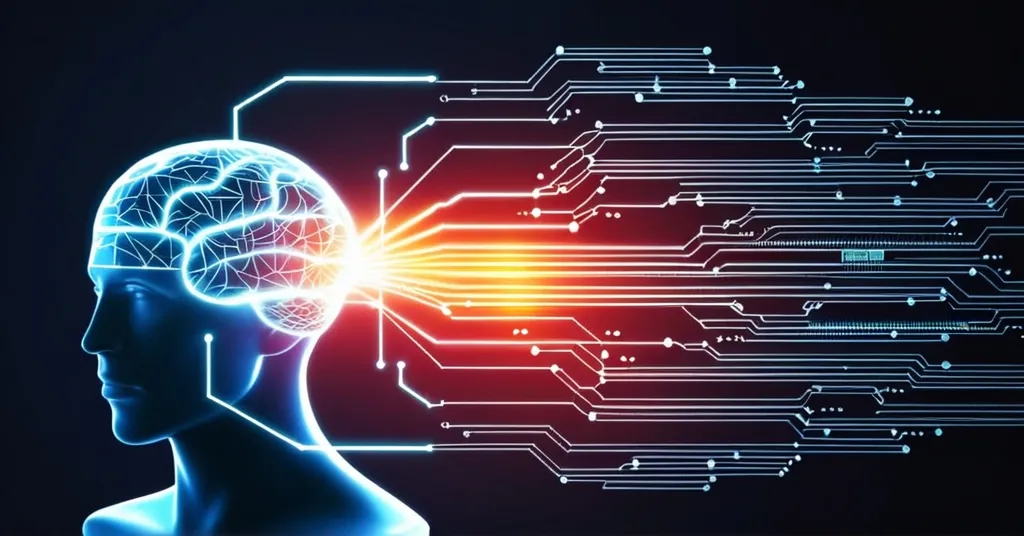Tether Ventures into BCI with Open-Source BrainOS: Aiming to Revolutionize Neural Augmentation

Tether’s Bold Leap into Brain-Computer Interfaces with Open-Source BrainOS Platform
Tether, well-known for its stablecoin USDT, is now venturing into the cutting-edge world of brain-computer interface (BCI) technology with BrainOS, an open-source platform aimed at advancing neural augmentation. Spearheaded by Tether Data, this initiative seeks to make advanced brain technology accessible to everyone, ensuring that such innovations remain decentralized and transparent.
- Tether launches BrainOS, an open-source BCI platform.
- Led by Tether Data, aims to prevent private monopolization of BCI tech.
- Follows a $200 million investment in BlackRock Neurotech.
CEO Paolo Ardoino announced BrainOS in an interview excerpt on Tether’s official website, highlighting the company’s vision for the future of BCI technology. BCI technology allows direct communication between the brain and external devices, offering transformative potential for human interaction with technology. Tether’s substantial investment in BlackRock Neurotech, a pioneer in BCI, underscores its commitment to this field. BlackRock Neurotech has already achieved remarkable success, assisting over 40 patients with paralysis worldwide to control robotic limbs, fly drones, and even communicate through thought.
Ardoino emphasized the critical role BCIs could play in bridging the gap between human creativity and the rapid advancement of artificial intelligence (AI). He believes that integrating BCIs with high-speed data access could be vital for humans to maintain intellectual relevance in an AI-driven future. Ardoino stated:
“I’ll probably be criticized for this statement, but I believe it’s important to be extremely objective when analyzing a technology’s impact on society as a whole. The line between human creativity and AI’s artistic ‘simulation’ is already very thin today. I therefore believe it’s likely that in the next 5-10 years, we won’t be able to tell whether an artistic production was created by a human or a machine.”
Beyond enhancing human cognition and creativity, BrainOS is set to revolutionize communication by overcoming the limitations of natural language. Ardoino explained:
“Natural language can only express an approximation of thought, as the complete set of available terms is limited. To be completely expressive, a language would need infinite terms to describe every small detail of a thought.”
With BrainOS, Tether aims to make communication more precise and comprehensive, potentially unlocking new levels of expression and understanding.
Tether’s commitment to open-source and decentralization aligns with broader industry trends toward democratizing access to emerging technologies. By fostering collaborative research and ethical innovation through partnerships with academic institutions, Tether hopes to set a precedent for how such technologies are developed and shared. Imagine being able to control your computer with just your thoughts—what could this mean for people with disabilities?
The market for BCI technology is highly competitive, with companies like Neuralink, Synchron, Onward, and Paradromics all vying for market share. Tether’s open-source approach with BrainOS could position it as a leader in promoting widespread adoption and innovation. Additionally, BlackRock Neurotech is developing a next-generation BCI called “Neuralace,” which could potentially integrate with BrainOS to enhance its capabilities even further.
While Tether’s venture into BCI technology is ambitious, it’s crucial to maintain a balanced perspective. The potential for BCIs to enhance human abilities is undeniable, but the technology also raises significant ethical concerns and questions about privacy and security. Critics worry about the potential for misuse in surveillance or privacy invasion. As with any emerging technology, the path forward will require careful consideration and responsible development. Let’s not kid ourselves—BCIs could be a privacy nightmare if not handled right.
As a Bitcoin-focused publication, it’s worth considering how BCI technology might impact the cryptocurrency and blockchain spaces. Could BCIs lead to more secure and intuitive ways of managing digital assets? While Bitcoin maximalists might raise an eyebrow at the thought of brain-controlled wallets, the potential for BCI to enhance user experience and security in the crypto world is intriguing. This could potentially be explored further in academic research.
The potential of BrainOS and Tether’s broader initiatives in the BCI space are immense. They promise to disrupt the status quo and enhance human capabilities, aligning with the principles of decentralization, freedom, and effective accelerationism that we champion. However, the journey ahead will require a careful balance of optimism and realism as we navigate the challenges and opportunities at the intersection of humanity and technology.
Key Questions and Takeaways
- What is BrainOS?
BrainOS is an open-source platform developed by Tether aimed at advancing brain-computer interface technology and making it accessible and decentralized.
- Who announced the BrainOS initiative?
Paolo Ardoino, the CEO of Tether, announced the BrainOS initiative.
- What is Tether’s goal with BrainOS?
Tether aims to democratize access to advanced brain augmentation tools and ensure that BCI advancements remain decentralized and transparent.
- How is Tether connected to BlackRock Neurotech?
Tether invested $200 million in BlackRock Neurotech, a company that is a pioneer in BCI technology and assists patients with paralysis.
- Why is human augmentation important according to Paolo Ardoino?
Ardoino believes human augmentation, specifically through BCIs, is crucial for maintaining human intellectual relevance as artificial intelligence continues to evolve rapidly.
- What are the potential benefits of BrainOS in communication and thought expression?
BrainOS is intended to overcome the limitations of natural language, enabling more precise and complete expression of thoughts by potentially providing infinite terms to describe every detail of a thought.
- How does Tether plan to ensure ethical innovation with BrainOS?
Tether plans to foster collaborative research and ethical innovation through partnerships with academic institutions, maintaining an open-source and decentralized approach to BCI technology.
- How might BCI technology impact the cryptocurrency and blockchain spaces?
BCI technology could potentially lead to more secure and intuitive ways of managing digital assets, enhancing user experience and security in the crypto world.



